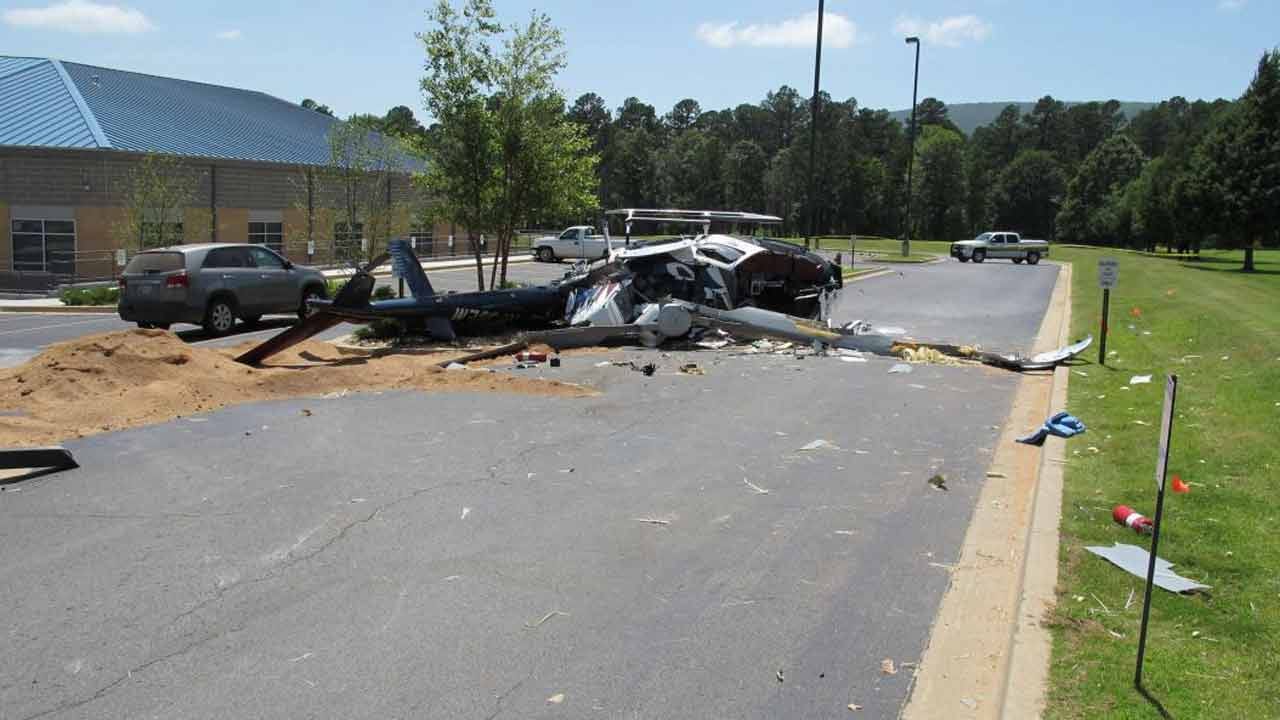NTSB: Fatal Talihina Helicopter Crash Leads To Changes
The National Transportation Safety Board says the company that operated a helicopter involved in a fatal crash in 2013 has made changes.Wednesday, September 9th 2015, 2:06 pm
The National Transportation Safety Board says the company that operated a helicopter involved in a fatal crash in 2013 has made changes as a result of it.
The NTSB has released its Factual Report on the crash, which happened on June 11, 2013 at the Choctaw Indian Hospital in Talihina.
The crash killed the patient on board, 49-year-old Michael Wilson, of Bethel. A flight nurse received critical injuries, while a flight paramedic and the pilot escaped serious injury.
6/11/2013: Related Story: 1 Dead, 3 Injured In Medical Helicopter Crash In Talihina
According to the NTSB, when the Eurocopter AS350B2 operated by EagleMed arrived at Choctaw Indian Hospital that afternoon to pick up a patient to take to St. Francis in Tulsa, another medical helicopter was already in the hospital's single-space helipad.
The pilot landed the Eurocopter on a road nearby, the NTSB said. When it lifted off at 6:30 that evening, according to the NTSB, the left side of its main rotor struck a light pole about 175 feet from where it had taken off. The helicopter was heading west when the accident happened.
Read the Factual Report on the crash.
The impact caused the helicopter to go out of control and crash, ending up on its right side, according to the report.
6/20/2013: Related Story: NTSB: Medical Helicopter Hit Light Pole Before Deadly Talihina Crash
The NTSB said the 32-year-old pilot held a commercial pilot certificate with ratings for rotorcraft - helicopter, and instrument helicopter. He had an estimated total pilot experience in helicopters of about 3,560 hours, with a total of about 88 hours in AS-350 helicopters, the NTSB said.
He was working a 12-hour daytime schedule that began about 7 a.m. and he had flown two previous flights that day, according to the NTSB. The pilot and the flight paramedic were tested for 11 drugs and alcohol and all the tests were negative, according to the report.
The NTSB said the helicopter was equipped with a cockpit video recorder, but investigators said it did not record any video during the crash. EagleMed told the NTSB is has since started monitoring the video systems installed on its helicopters.
EagleMed also told the NTSB the accident could have been prevented if the pilot had followed company procedure to identify and climb above the highest obstacle before transitioning to forward flight.
The NTSB said it interviewed two more experienced emergency medical helicopter pilots, who both said the preferred procedure for taking off from a non-airport location is to climb vertically above all obstacles before transitioning to forward flight.
The Factual Report is the second of three reports the NTSB will release on the crash. The final one is called the Probable Cause Report and should be released in a month or two.
More Like This
September 9th, 2015
November 13th, 2024
October 28th, 2024
October 17th, 2024
Top Headlines
January 12th, 2025
January 12th, 2025
January 12th, 2025
January 12th, 2025











